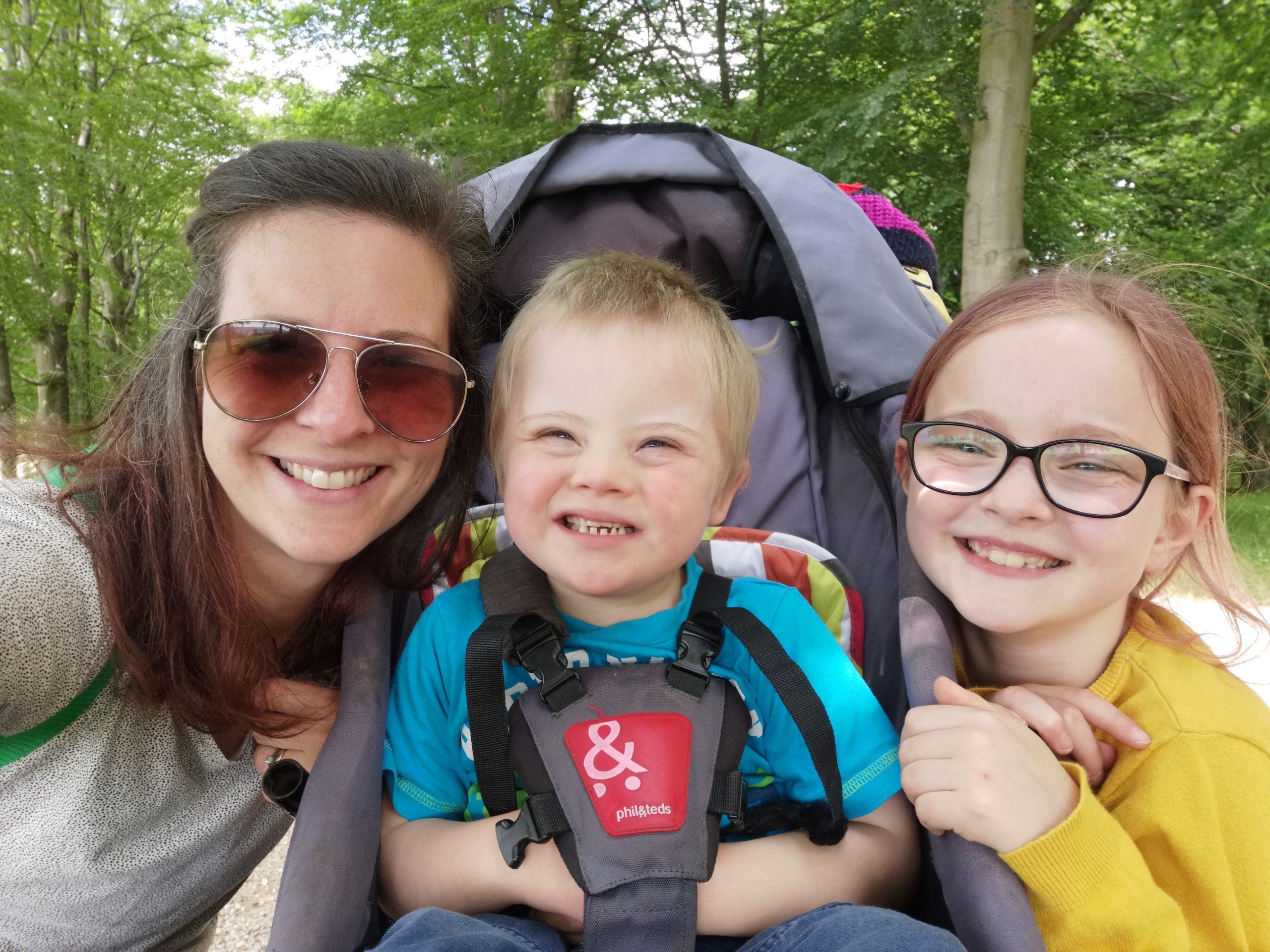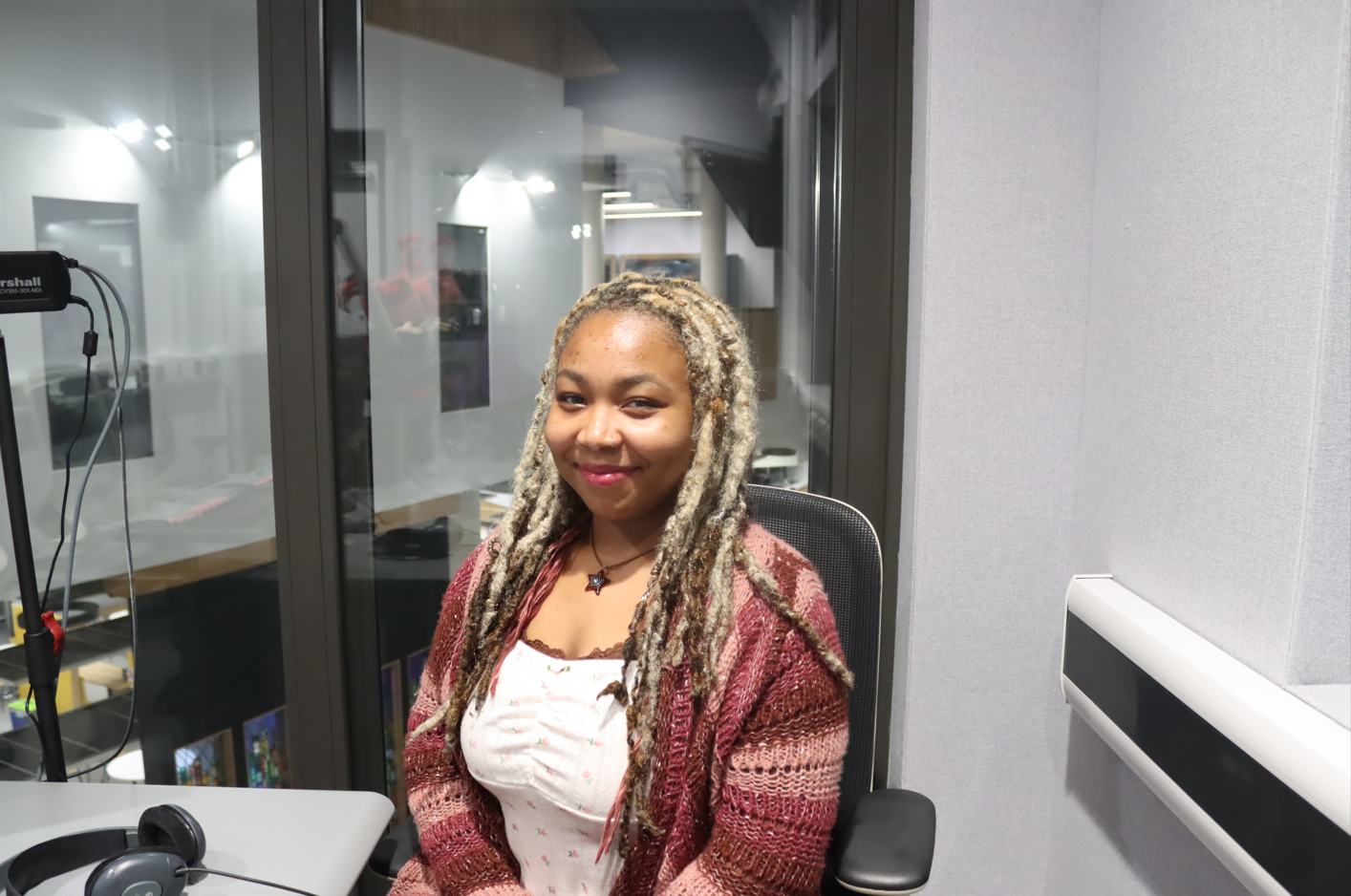Image: Dancing in Driveways. Credit: Sophie Henderson
Neighbours in Sheffield have been using the power of dance to combat social isolation, keep fit and stay connected during Covid.
When the UK went into its first lockdown back in March 2020, many communities came up with new and innovative ways to keep in touch and raise spirits. One street in Sheffield has been working to achieve this by dancing in their driveways.
For almost a year, the neighbours have come out every week to dance together in a bid to stay connected and help improve their mental and physical health. The sessions are led by Charlotte Armitage, who said the idea came about when one of her neighbours started a street-wide WhatsApp group to support those who were shielding, isolated, or in need of medical prescriptions.
As the country entered lockdown, Charlotte’s usual work as a community dance artist, working to improve the wellbeing of children and adults, had to be stopped. “I just suggested that we all came out on the first Monday morning and danced, which we did”, she said. “That night we went into lockdown which was the 23rd of March. From then on I was like: Oh hang on a minute we could just do this every morning, we could do this to keep us going. So, every morning we came out and danced just to give people something to do, some fresh air, a bit of exercise, and a chance to not feel quite so gloomy about the situation.”
The dancing briefly paused in September when schools reopened, but they soon restarted on a weekly basis. “In October we said actually we’re still not really released in the way we thought. We had thought we’d be much more back to normal, so we decided to start again.” said Charlotte.

Community dance artist Charlotte Armitage leads the sessions. Credit: Sophie Henderson
On most days, as many as 25 people will be outside dancing to the music pumping from Charlotte’s speakers, a number which rose to 50 during the summer months. The community is always finding more ways to raise spirits, from pumpkin-carving and cake-baking to their current Easter bonnet competition.
Prior to the pandemic, other than a brief ‘hello’ every now and again, the neighbours barely knew each other. “We’ve built friendships,” Charlotte said. “We know them well enough that you feel like they are the people who you’d have a cup of tea with when we’re allowed to, or arrange to invite over to a barbecue. We’ve shared birthdays and shared experiences with each other as well as helping each other out.”
An ICM survey suggests communities in the UK have been brought together during the pandemic, with 41% of people saying their community has become more united. The poll also saw 50% of people agree that the public’s response to Covid-19 has highlighted society’s unity more than its divisions, compared to 27% who disagreed with this statement.
This social contact has been particularly important for those who have been more isolated during the pandemic. Margaret Mullins, 84, who is shielding with her 92-year-old husband, praised the dancing as “the best tonic you could ever have.” On her birthday last April, the community surprised her by laying out flowers along the path and singing ‘Happy Birthday’. Margaret has been unable to see her daughter who is working as a nurse and didn’t know any of her neighbours before the pandemic. She now knows they are there if she needs help. “You know that you can depend on everybody. They’d do anything for you.” she said.

Margaret Mullins said the dancing has been “fantastic”. Credit: Sophie Henderson
As well as keeping the community active and connected, Charlotte said the exercise brings joy to their Sheffield street. “It’s being able to have that human contact and get your heart rate up,” Charlotte said. “It’s so lovely to come out to see people in the flesh and to be able to speak to people face to face. Obviously, we’re distanced in our driveways but you can still wave and chat across the street.”
Research by the Office for National Statistics (ONS) found 48% of adults said their well-being was being affected by the pandemic, which increased to 81% of adults who experienced symptoms of depression or anxiety. In November 2020, 7% of adults reported often or always feeling lonely, a figure that rose among respondents experiencing depression (26%) or anxiety (24%).
Margaret Lewis, CEO of Sheffield Mind, said some research suggests anxiety, depression, and stress may be lower among those engaging in group exercise. “It makes sense that when exercise is done with others it can provide a means of social support and reduce feelings of loneliness, as well as help you keep fit,” she said.
“Group exercise gives you the opportunity to meet and connect with other people who may share your interests, and if you’re dancing on your own street, with your neighbours, it contributes to a sense of community-connectedness. There may also be benefits for people who find one-to-one conversation difficult. Group exercise provides an opportunity to be with people, but not necessarily have to have in-depth conversations.”
The Sheffield neighbours have been out in all weather, with Charlotte going out early to grit the pavements during the cold winter months. “Obviously if it’s a sunny day that’s absolutely glorious, but even if it is pouring down we’ve got umbrellas and we’ve been dancing in the rain,” she said. “People say it makes them feel good and they like the routine of it.”

Charlotte Armitage dancing in the rain. Credit: Joe Armitage
But as restrictions begin to lift and communities return to a more ‘normal’ way of living, what will happen to such established lockdown routines? “We’re going to party,” said Charlotte. “We’ve already talked about, on many occasions, the possibility of a street party which obviously will have to happen, it would be silly not to.”
Charlotte said while she will be returning to her full-time job, it would be a shame to stop dancing. “I’m sure we can figure out something that we can do to carry on,” she said. “We’ll find a way to keep connected with each other and keep dancing.”




